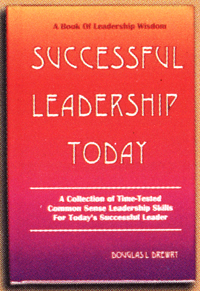
1967 Hornblower and the Crisis, an unfinished novel.1950 " Hornblower and the Widow McCool" ("Hornblower’s Temptation" ""Hornblower and the Big Decision").John Forester wrote a two-volume biography of his father, including many elements of Forester's life which became clear to his son only after his father's death. In 1947 he married Dorothy Foster.įorester died in Fullerton, California on 2 April 1966. They had two sons, John, born in 1929, and George, born in 1933. Personal life įorester married Kathleen Belcher in 1926. Ī previously unknown novel of Forester's, The Pursued, was discovered in 2003 and published by Penguin Classics on 3 November 2011.

The Barbary Pirates (1953) is a children's history of early 19th-century pirates.įorester appeared as a contestant on the television quiz programme You Bet Your Life, hosted by Groucho Marx, in an episode broadcast on 1 November 1956. George had mild food allergies and needed encouragement to eat.

NAVY WRITER SERIES
Poo-Poo and the Dragons (1942) was created as a series of stories told to his son George to encourage him to finish his meals. His non-fiction works about seafaring include The Age of Fighting Sail (1956), an account of the sea battles between Great Britain and the United States in the War of 1812.įorester also published the crime novels Payment Deferred (1926) and Plain Murder (1930), as well as two children's books. The last of the stories in Gold from Crete is If Hitler Had Invaded England, which offers an imagined sequence of events starting with Hitler's attempt to implement Operation Sea Lion and culminating in the early military defeat of Nazi Germany in the summer of 1941. The stories in The Man in the Yellow Raft (1969) follow the career of the destroyer USS Boon, while many of the stories in Gold from Crete (1971) follow the destroyer HMS Apache. Those in The Nightmare (1954) were based on events in Nazi Germany, ending at the Nuremberg trials. Forester is also credited as story writer on several films not based on his published novels, including Commandos Strike at Dawn (1942).įorester also wrote several volumes of short stories set during the Second World War. Several of his novels have been filmed, including The African Queen (1951), directed by John Huston. Hornblower's fictional adventures were based on real events, but Forester wrote the body of the works carefully to avoid entanglements with real world history, so that Hornblower is always off on another mission when a great naval battle occurs during the Napoleonic Wars.įorester's other novels include The African Queen (1935) and The General (1936) two novels about the Peninsular War, Death to the French (published in the United States as Rifleman Dodd) and The Gun (filmed as The Pride and the Passion in 1957) and seafaring stories that do not involve Hornblower, such as Brown on Resolution (1929), The Captain from Connecticut (1941), The Ship (1943), and Hunting the Bismarck (1959), which was used as the basis of the screenplay for the film Sink the Bismarck! (1960). The last completed novel was published in 1962. He began the series with Hornblower fairly high in rank in the first novel, which was published in 1937, but demand for more stories led him to fill in Hornblower's life story, and he wrote novels detailing his rise from the rank of midshipman. Literary career įorester's 1934 science fiction novel The Peacemaker was reprinted in Famous Fantastic Mysteries in 1948.įorester wrote many novels, but he is best known for the 12-book Horatio Hornblower series about an officer in the Royal Navy during the Napoleonic Wars. According to Dahl's autobiography, Lucky Break, Forester asked him about his experiences as a fighter pilot, and this prompted Dahl to write his first story, "A Piece of Cake".

In 1942, while he was living in Washington, D.C., he met Roald Dahl and encouraged him to write about his experiences in the RAF. He eventually settled in Berkeley, California. ĭuring the Second World War Forester moved to the United States, where he worked for the British Ministry of Information and wrote propaganda to encourage the U.S. He began writing seriously, using his pen name, in around 1921. He was of good height and somewhat athletic, but wore glasses and had a slender physique, so he failed his Army physical and was told that there was no chance that he would be accepted. He began to study medicine at Guy's Hospital, but left without completing his degree. After the family broke up when he was still at an early age his mother took him with her to London, where he was educated at Alleyn's School and Dulwich College. ( July 2017) ( Learn how and when to remove this template message)įorester was born in Cairo. Unsourced material may be challenged and removed. Please help improve this section by adding citations to reliable sources.


 0 kommentar(er)
0 kommentar(er)
